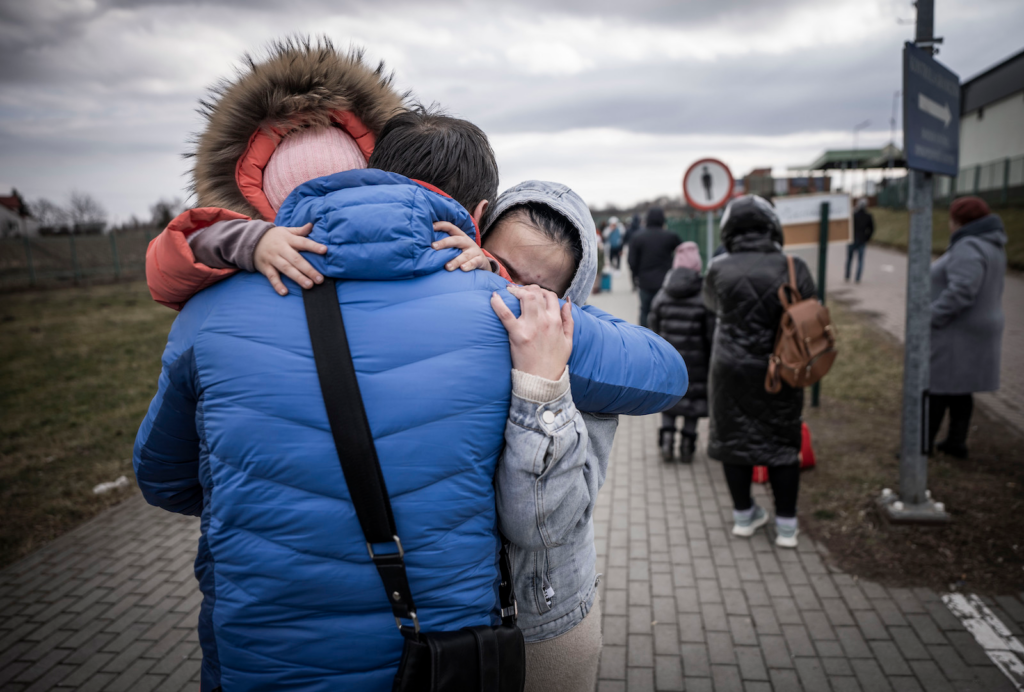1 out of every 5 people in Europe cannot get enough food to meet their basic needs on a regular basis. Food aid is one way to address this complex issue but aid alone is not enough. We need to look at ways of increasing food security for those living in poverty and providing support for those struggling with hunger-related illnesses.
From the causes of hunger to its effects on individuals and communities, we will explore what drives this crisis and how it can be addressed. By understanding the problem and its impact, we can take steps toward finding a solution.

What is the Cause of severe food insecurity in Europe
Poverty is the leading cause of hunger in Europe, as people cannot afford to buy enough food to meet their nutritional needs. Other causes include natural disasters, conflict, and displacement.
According to Eurostat, the European Union’s statistical agency, poverty rates have been steadily increasing. In 2021, 95.4 million people in the EU, representing 21.7% of the population, were at risk of poverty or social exclusion, i.e., lived in households experiencing at least one of the three poverty and social exclusion risks (risk of poverty, severe material, and social deprivation and/or living in a household with very low work intensity). This is an increase compared with 2020 (94.8 million experienced poverty).

In 2021, 73.7 million people in the EU were at risk of poverty, 27.0 million were severely materially and socially deprived, and 29.3 million lived in a household with low work intensity.
The risk of poverty or social exclusion varied across the EU Member States. The highest percentage of people at risk of poverty or social exclusion were recorded in Romania (34%), Bulgaria (32%), Greece, and Spain (both 28%).
In contrast, the lowest shares of people at risk of poverty or social exclusion were recorded in Czechia (11%), Slovenia (13%), and Finland (14%).

Other causes of hunger in Europe include conflicts and natural disasters. According to the United Nations World Food Programme, over four million people in Ukraine are food insecure. In addition, the 2015 earthquake in Nepal led to a significant increase in hunger levels in the country.
Another cause is poor nutrition and diet. In addition, some people may not know enough about proper nutrition and how to cook healthy meals. As a result, they may end up eating unhealthy foods that do not provide their bodies with the nutrients they need.

How Hunger Affects People and Communities
Hunger has several negative effects on people’s health, well-being, and productivity. Malnutrition can lead to stunted growth, weakened immune systems, and increased susceptibility to illness. In addition, hungry children are more likely to miss school and perform poorly when they do attend classes.
Adults who are hungry are less productive at work and more likely to fall ill. It also affects communities as well as individuals. Poor nutrition can lead to increased crime rates, violence, and economic productivity.

Strategies to Help Those in Need
There are many strategies that can be employed to help reduce food insecurity in Europe
1. Provide financial assistance to those who are struggling to make ends meet
The current economic crisis has strained many people’s finances, leaving them struggling to make ends meet. It is essential that we provide financial assistance to those who are in need of it. Including;
Offering grants
Providing low-interest rate loans
Creating incentives for businesses to hire and retain employees
Job training and career counseling can also help. By taking these steps, we can help those who are in need of financial assistance get back on their feet and move forward with their lives.
2. Volunteer your time at a local food bank or soup kitchen
One of the most effective ways to make an impact is by volunteering at a local food bank or soup kitchen. This kind of volunteer work allows you to directly help those struggling with hunger and provide them with basic necessities such as food, clothing, and other items. By volunteering your time, you can make a real difference in the lives of those facing hunger.

3. Donate funds
We all have the power to make a difference and help those in need by donating money, crypto, stocks, or food to a local food bank or soup kitchen. With your donations, you can help provide plant-based meals for families who are struggling with hunger and poverty.
Food for Life Global Food Aid in Europe
Food for Life Global (FFLG) has been providing free plant-based meals and resources to those displaced by the Ukraine Crisis. FFLG has responded to refugee crises in the past, and we strive to help those impacted in any way that we can.
Through our food and resource programs, FFLG is providing refugees with access to nutritious meals, clean water, medical care, and other necessary resources. We are also working with local partners in Ukraine to provide job training opportunities for refugees so they can gain skills that will help them build a better future.
Hunger is a major issue that affects many people in the region. Despite being one of the most developed regions in the world, there are still millions of people who are struggling with food insecurity and malnutrition.
Hunger is an incredibly complex problem that has been exacerbated by economic challenges such as poverty, unemployment, and displacement.
The situation is even more dire for those living in rural areas or refugee camps with limited access to food. It’s essential that we spread awareness about this issue and take action to help those affected. We must work together to ensure that everyone has access to nutritious meals and can lead healthy lives.





